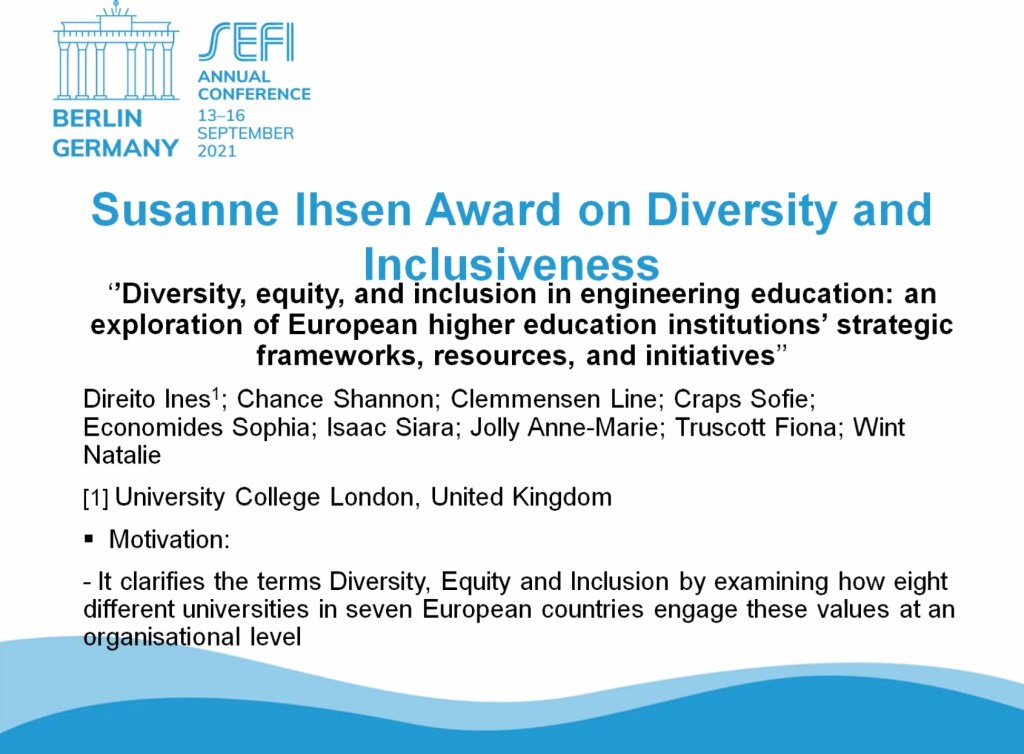You might be asking yourself why I went to India at the start of the New Year. As you may recall, I served on the global Research in Engineering Education Network (REEN) for five years. During that time I chaired REEN’s governing body but before I started chairing I served on a sub-committee to recruit and select host/locations for our Research in Engineering Education Symposium (REES).


REES is generally held every other year, and we go to locations around the globe. REES is a way to meet new people, extend our networks, practice new research skills, and share what we find as we research engineering education. The symposia help attendees learn about engineering education in new parts of the world and they help the community in each region where REES meets to gain momentum. REE Symposia help people entering the field of Engineering Education Research (EER) to meet people who have been doing EER longer.


REEN was held in Honolulu (2007), Davos (2008), Queensland Australia (2009), Madria (2011), Kuala Lumpur (2013), Dublin (2015), Bogotá (2017), Cape Town (2019), Perth (2021), and now Hubli, India (January 4-6, 2024).
The REEN.co website explains that “provides a forum to share, discuss, disseminate, and propagate high-quality research and best practices through the Global Engineering Education Research community.”


REES 2024 was hosted by KLE Technological University (KLE Tech) in collaboration with the Indo-Universal Collaboration for Engineering Education (IUCEE). We met on KLE Tech’s B. V. Bhoomaraddi Campus in Vidyanagar, Hubballi, Karnataka, India.
We typically team up with the local national organization for engineering practitioners and/or engineering educators. KLE Tech staff are leaders of IUCEE and are leading the way in EER, research-based teaching, and the Scholarship of Teaching and Learning (SoTL).
IUCEE is doing great things in India! It’s vision is “is to improve the quality and global relevance of engineering education in India” and to do this it seeks “to build an ecosystem for transforming engineering education in India with the assistance of engineering education experts and industry from around the world” (https://iucee.org/). The organization’s website is chock full of information with a vast number of events and activities featured every week on its homepage. Wow!
When I was on the REES selection committee, three scholars from India who are active in IUCEE applied to host a Symposium. That excellent proposal came from Krishna Vedula, Gopal Joshi, and Sohum Sohoni who I’ve had the pleasure of working with over the years since we made that selection in 2018.


IUCEE was launched in 2007 and today the organization has members from all over India, as well as from the Indian diaspora (all those brave folks who left India to work, study and live elsewhere in the world), like Sohum, who teaches engineering in the USA. I don’t know how many members IUCEE has, but LinkedIn shows 847 followers. Ooops! Add one more! I’m following now, and so can you: https://www.linkedin.com/company/indo-universal-collaboration-for-engineering-education/?originalSubdomain=in


REEN also has a LinkedIn group you can join (https://www.linkedin.com/groups/8537067/), and you can also subscribe to get email updates from REEN (https://reen.co/subscribe/). My fabulous former boss currently runs the REEN website — shout out to John Mitchell at UCL, a truly great person to work with and for!
So, REEN selected India as a host and asked the applicants to send a member to our REEN team to help us all prepare for REES 2024. We scheduled the event for January when IUCEE’s annual conference falls.
Getting to Hubballi, Karnataka, India for the first time was no small feat, with complicated visa and flight arrangements. Thanks very much to Dr. Nithya Venkatesan, Assistant Director of International Relations at VIT Chennai for helping me arrange flights and some accommodations for my stay. Her help made my trip possible as I was truly overwhelmed.


But it was all worth the effort. It was so inspiring to meet the very energetic members of IUCEE, as REES overlapped their conference by one day. May IUCEE members stayed on for the REE Symposium and contributed to it in insightful ways.
I’ll tell you more about the happenings of REES 2024 in an upcoming blog. Thanks for reading along today to learn how I was inspired to travel to India for my first time.



























